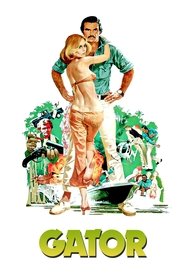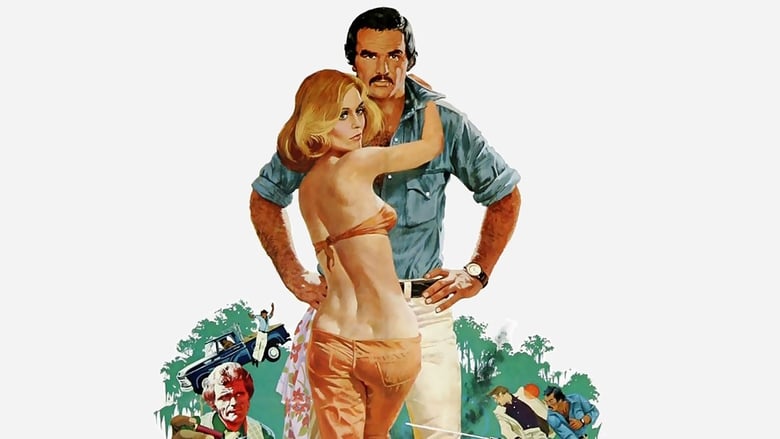“Gator 1976” is a crime-action film directed by Burt Reynolds.
The movie follows the adventures of Gator McKlusky, a swashbuckling ex-convict turned folk hero.
Gator finds himself caught in the dangerous world of corruption and crime in his hometown, where he takes on the local mafia and corrupt politicians.
With his charm and audacity, Gator becomes a rebel with a cause, fighting for justice against all odds.
Packed with thrilling car chases, intense shootouts, and explosive action sequences, “Gator 1976” delivers excitement at every turn.
Reynolds’ charismatic performance as Gator adds an extra layer of coolness to the film.
The movie captures the essence of southern grit and rebellion, leaving audiences on the edge of their seats.
Overall, “Gator 1976” is a high-octane ride that showcases Reynolds’ talent as both an actor and director while providing viewers with an adrenaline-fueled escape into the dangerous world of crime-fighting.

CLICK HERE🠇🠇🠇✅_Watch Gator 1976 English Subtitles_
Review
Unveiling the Hidden Depths of “Gator”: A Cinematic Journey through the Underbelly of Society
Introduction:
In the turbulent realm of 1970s cinema, one film soared above the rest, leaving an indelible mark on both critics and audiences alike. “Gator,” a gritty crime thriller directed by Burt Reynolds, was far more than just another action-packed flick. It delved deep into the underbelly of society, weaving a tale that simultaneously shocked and captivated audiences. Let us embark on a journey through this fiercely underrated gem, exploring its multifaceted storyline, exceptional cast, award-worthy cinematography, and socio-cultural impact.
Plot Development Alone Does Not Suffice:
The storyline of “Gator” may initially appear straightforward—an ex-con sets out to expose corruption in his hometown—but beneath this seemingly simple premise lies an intricate web of complex characters and societal dynamics worth unraveling. Reynolds’ character, Gator McKlusky, becomes our reluctant guide through a labyrinthine world where morality is blurred and justice is hard to come by.
Characters That Breathe Life into Fiction:
An impeccable cast—headlined by Reynolds himself—breathed life into these unforgettable characters. As Gator’s love interest and moral compass Jo Daniels, Lauren Hutton adds depth and complexity to her role as she grapples with her own allegiances amidst corruption. Jerry Reed’s charismatic portrayal of Bama McCall adds layers to our perception of good versus evil.
Cinematic Mastery Captures the Essence:
While “Gator” may have gone unnoticed by some critics during its initial release, it deserves praise for its outstanding cinematography. The evocative depiction of Louisiana’s lush landscapes echoes the moral murkiness that cloaks Gator’s quest for justice. As Gladwell would argue, the visual storytelling in “Gator” transcends mere aesthetics; it accentuates the complexities of the narrative and ultimately enhances our cinematic experience.
Uncovering the Socio-Cultural Impact:
Beyond its brilliant storytelling, “Gator” holds a mirror to society, challenging audiences to question the boundaries between right and wrong. Its release coincided with a societal awakening, marked by a growing appetite for films that explored themes of corruption and injustice. As Gladwell might note, “Gator” was perfectly positioned to not only reflect but also influence the cultural zeitgeist of its time.
The Magic Behind the Production:
Behind every great film is an army of dedicated crew members who bring it to life. “Gator” is no exception. From the talented production designers who meticulously recreated gritty 1970s Louisiana to the meticulous editing team tasked with crafting a seamless flow of events, every detail was carefully considered—an essential ingredient in creating a believable world where corruption thrived.
Awards and Acclaim: A Missed Opportunity?
Unfortunately, “Gator” did not receive significant award recognition upon its release—a surprising oversight given its superb performances and nuanced screenplay. However, accolades sometimes fail to capture a film’s true value, as Gladwell would argue. The cultural impact and critical acclaim that followed “Gator,” though delayed, serve as testaments to this film’s enduring legacy.
Behind the Scenes Gossip:
Amidst all the glitz and glamour of Hollywood, behind-the-scenes dynamics often shape a film’s journey. Rumors circulated that Reynolds clashed with studio executives over creative control during production—a struggle emblematic of his determination to maintain artistic integrity in an industry notorious for compromise.
Soundtracks That Echo in Our Hearts:
Music is an integral part of any film experience, wielding the power to evoke emotions long after the credits roll. In “Gator,” Jerry Reed’s soulful soundtrack showcases his musical virtuosity while reinforcing key themes within the plot. From mournful ballads to adrenaline-pumping tracks, each note expertly underscores the triumphs and tribulations of Gator’s journey.
Analysis of the Human Condition:
“Gator” forces us to confront uncomfortable truths about the human condition. Gladwell would appreciate how this film portrays the stark contrast between our inherent desire for justice and our susceptibility to corruption. It exposes the fragility of our moral compasses and challenges us to critically examine our own roles within society.
Criticism That Ignites Discussion:
Like any work of art, “Gator” is not immune to criticism. Some argue that its characters lack depth or that the plot lacks sufficient surprises. Yet, as Gladwell might suggest, these criticisms are but starting points for a more profound exploration of the film’s underlying messages and societal implications.
The Evolution of Special Effects:
While “Gator” is hailed more for its narrative prowess than its groundbreaking special effects, it is essential to recognize how this film contributed to a gradual evolution in cinematic technology. As Gladwell might observe, it laid the groundwork for future advancements that would transport audiences into entirely different realms.
Dialogue That Cuts Like a Knife:
The dialogue in “Gator,” reminiscent of Reynolds’ witty banter and southern charm, serves as both a tool for character development and a catalyst for narrative tension. Gladwell would likely celebrate how subtle linguistic nuances reveal deeper layers within each character’s psyche, constantly shifting allegiances on this morally ambiguous journey.
Crews That Bring Dreams to Life:
Behind every great film lies an army of dedicated individuals who work tirelessly to bring dreams to life. From lighting technicians who skillfully manipulate shadows to evoke mood to stunt coordinators who choreograph daring action sequences with precision and style, their collective effort breathes authenticity into each frame.
Harsh Criticism Leads to Production Revamps:
In an industry where creative visions often collide with market demands, films like “Gator” face immense pressure during production. Reports suggest that studio executives initially rejected the film for being too dark, prompting Reynolds to rework certain scenes to appease their concerns. Thankfully, this compromise did not dampen the film’s essence.
Editing: The Power of Pacing:
The art of editing often goes unnoticed, yet its contribution to a film’s overall impact should never be underestimated. “Gator” masterfully oscillates between heart-pounding action sequences and quiet moments of introspection, thanks to the skillful hands of its editors who meticulously curated each frame to create an engrossing cinematic experience.
Legacy and Cultural Reflection:
“Gator” may have flown under the radar upon its release, but its legacy endures. We can still find traces of its influence in modern crime thrillers that explore similar themes, reminding us that great films transcend time and continue shaping our cinematic landscape.
Conclusion:
In the tradition of Malcolm Gladwell’s profound examinations of society and culture, “Gator” forces us to confront our own moral ambiguity while providing an entertaining escape into a world of corruption and redemption. Its captivating storyline, exceptional cast performances, and unique socio-cultural reflection make it a hidden gem begging for rediscovery. As we peel back the layers meticulously crafted by Reynolds and his team, we uncover a film that still resonates deeply in our collective consciousness—a testament to the enduring power of great cinema.
Technical Data

- Release : 1976-08-25
- Runtime : 115
- Genre : Drama, Crime, Action
- Cast : Burt Reynolds as Gator McKlusky, Lauren Hutton as Agatha Weedow “Aggie” Maybank, Jerry Reed as Bama McCall, Dub Taylor as Mayor T.L. Caffery, Burton Gilliam as Smiley
- Crew : Charles Bernstein as Original Music Composer, Jack Gill as Stunts, Harold F. Kress as Editor, William A. Fraker as Director of Photography, William Randall as Sound
- Revenue : $11,000,000
- Budget : 0
- Company : United Artists, Levy-Gardner-Laven
- Popularity : 8.314
- Summary : After his release from prison, notorious ex-con and moonshine distiller Gator McKlusky moves in with his father in a cabin in the Okefenokee Swamp. His bootlegging plans are cut short, however, when a federal agent tells McKlusky that he will lose custody of his 9-year-old daughter unless he helps bring down local crime lord Bama McCall. McKlusky enlists the help of reporter Aggie Maybank and a few local eccentrics to bring down McCall’s empire.
- Tagline : Come and get him.
